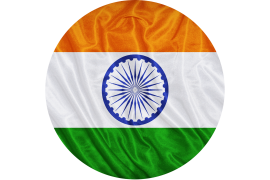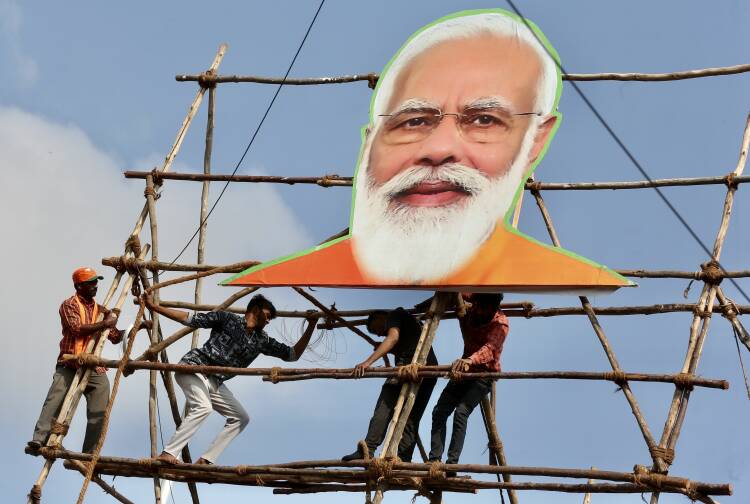

TEXT: BERT PLATZER
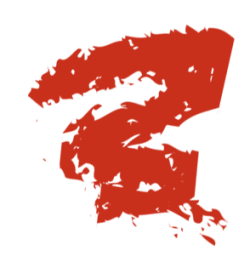
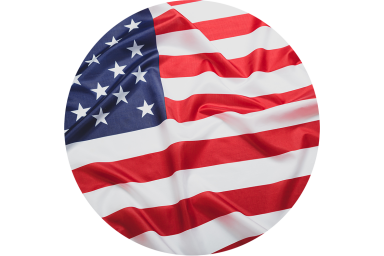

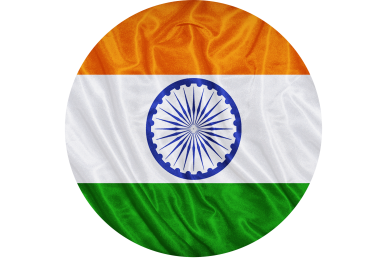
READING TIME: 8 MINUTES
This year, around 4 billion people will be allowed to go to the polls in almost 70 countries and in Europe. Although not all elections will be free and fair, sometimes we can outright speak of sham elections, such as in Bangladesh, Iran, Russia, Rwanda, Tunisia and Belarus. In this triptych, UG researchers Ritumbra Manuvie, Pieter de Wilde and Lisa Gaufman look ahead to the elections in India, Europe and the United States respectively. Anyhow, this year will show more than ever what the state of democracy is in the world.

Elections
in India,
Eur ope and
the United
States

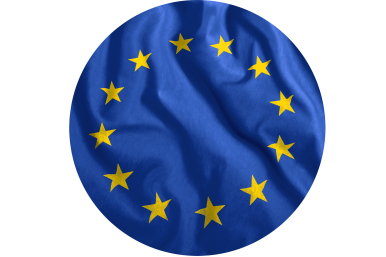
“
Lisa Gaufman:
‘The media should be writing
down that his speeches do
not add up.’
PHOTO: ANP / ELINE VAN NES
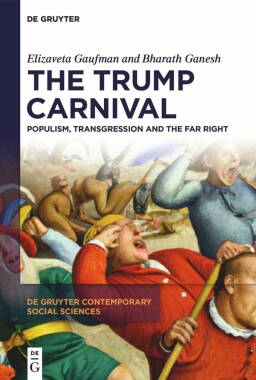
The book The Trump Carnival – Populism, Transgression and the Far Right by Lisa Gaufman and Bharath Ganesh is for sale, but can also be downloaded for free in open access. You can read more about the book and the download here.
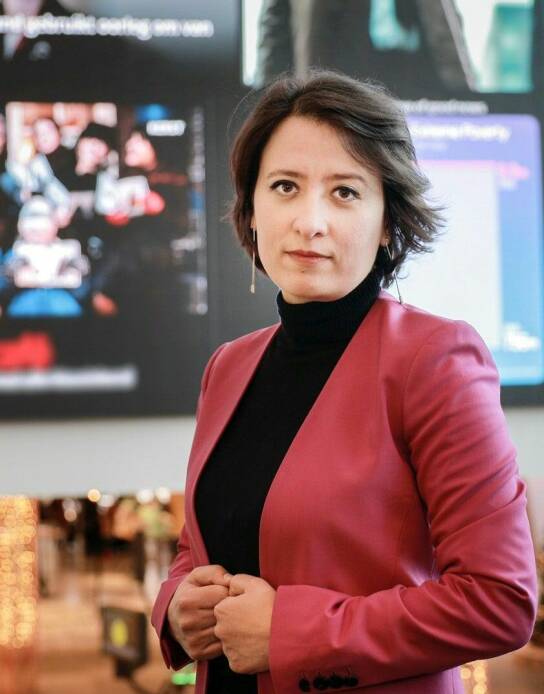
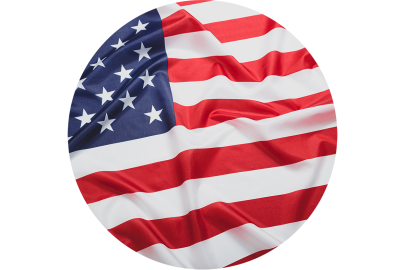

Trump or no Trump,
that is the question
In the run-up to the United States presidential election, it is mainly about Trump.
Even if he does not become the next president, democracy will suffer,
predicts Lisa Gaufman.
The question that is preying on our mind is: will it be Trump or Biden? And, of course, with ‘Biden’ we mean ‘not Trump’. ‘Yes, that is the question many people ask themselves’, says Lisa Gaufman. Her answer to this question is not very encouraging. In the recently published book The Trump Carnival – Populism, Transgression and the Far Right, assistant professors Lisa Gaufman of the UG and Bharath Ganesh of the University of Amsterdam show that it is perfectly possible that Trump will win the US presidential election in November.
Endless arguments
One problem, Gaufman points out, is that the media unconsciously normalize Trump. ‘Trump can make endless, incoherent arguments with no apparent point. That goes from windmills to toilet flushers to a friend’s yacht. The media turn this into a coherent story and distil his message from it. This way, they turn Trump into a normal politician and contribute to his popularity, whereas they should be writing down that his speeches do not add up.
Dictator from day one
Moreover, the American public has been battered by Trump’s increasingly radical rhetoric, while it actually incites violence among his supporters. ‘When Trump, during his first campaign, said that Mexicans bring drugs and crime, that was something new. But in a speech last November, Trump called immigrants vermin that poison the blood of the nation. The connotation, of course, is that vermin need to be exterminated. In December, he said that if he is president again, he will be a dictator from day one.
Eight years ago, he did not say such things yet, but it is now considered normal. Even The New York Times, a left-wing newspaper after all, presents Trump as an alpha male, whereas the reality is in fact quite a bit worse. They minimize the damage his rhetoric causes. Or they say he is just joking. You have to keep repeating that what he says is not okay. That it leads to violence, to deaths. Just look at the Capitol riots. And when Trump called coronavirus ‘the China virus’, it led to a peak in violence against Asians.
God’s imperfect tool
Trump uses this violence to hold the Republican Party in his grasp: many within the party are afraid of his violent supporters. At the same time, Trump made the racism that already existed within the party mainstream. ‘He gives voice to what many republicans were already thinking but were afraid of saying. Because of Trump, they are no longer ashamed of their racism.’
Add to this the fact that Trump presents himself as a political outsider, and you can imagine that for many conservative Americans he is an appealing candidate. ‘Before, the presidential candidate was expected to be a real family man, otherwise they had no chance of winning. But look at Trump: multiple women, adultery, court cases. With him, people see it as something positive, because he is an outsider. This does not even matter to the white, evangelical, deeply religious Christians, because they see him as God’s imperfect tool who will make America great again. Trump makes very clever use of this. He presents himself as the one who can fix it, because he is a so-called blue-collar billionaire, a successful businessman – which is, of course, nonsense. But this is consistent with the populist idea that he is not from the corrupt elite but from the pure people. In America's political culture, it is mainly the republicans who have a deeply ingrained distrust of the government and its institutions.’
Explain things better
It is obvious: It does not look good for the US. You can just see things going wrong again. Is there a bright side to this? If so, what is it? Gaufman: ‘Our main hope is that the media will reflect on themselves about what they are doing when they talk about the far right and normalize racist and fascist rhetoric. Furthermore, I do not know whether the Democratic Party is actually using its full potential to mobilize its electorate. They really need to explain better that because of Trump, the national right to abortion was taken away by the Supreme Court. But with the two eldest candidates in the history of the US, 77 and 81, it is difficult to mobilize the electorate, especially young people. Last time, they were also the eldest candidates.’
That is not a very bright side. ‘No,’ says Gaufman, ‘but I am an optimist and I still have hope that Trump will lose. But even if Biden wins, there will be violence. Trump’s supporters will resist violently because they will think that the results are not real.’
Koorosh Shomalzadeh – Faculty of Science and Engineering
The man who loves walking will walk further than the man who loves the destination.
PROPOSITION
FOTO: HENK VEENSTRA
PHOTO: REYER BOXEM
PHOTO: EEPA-JAGADEESH NV
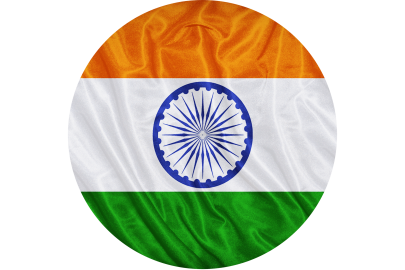

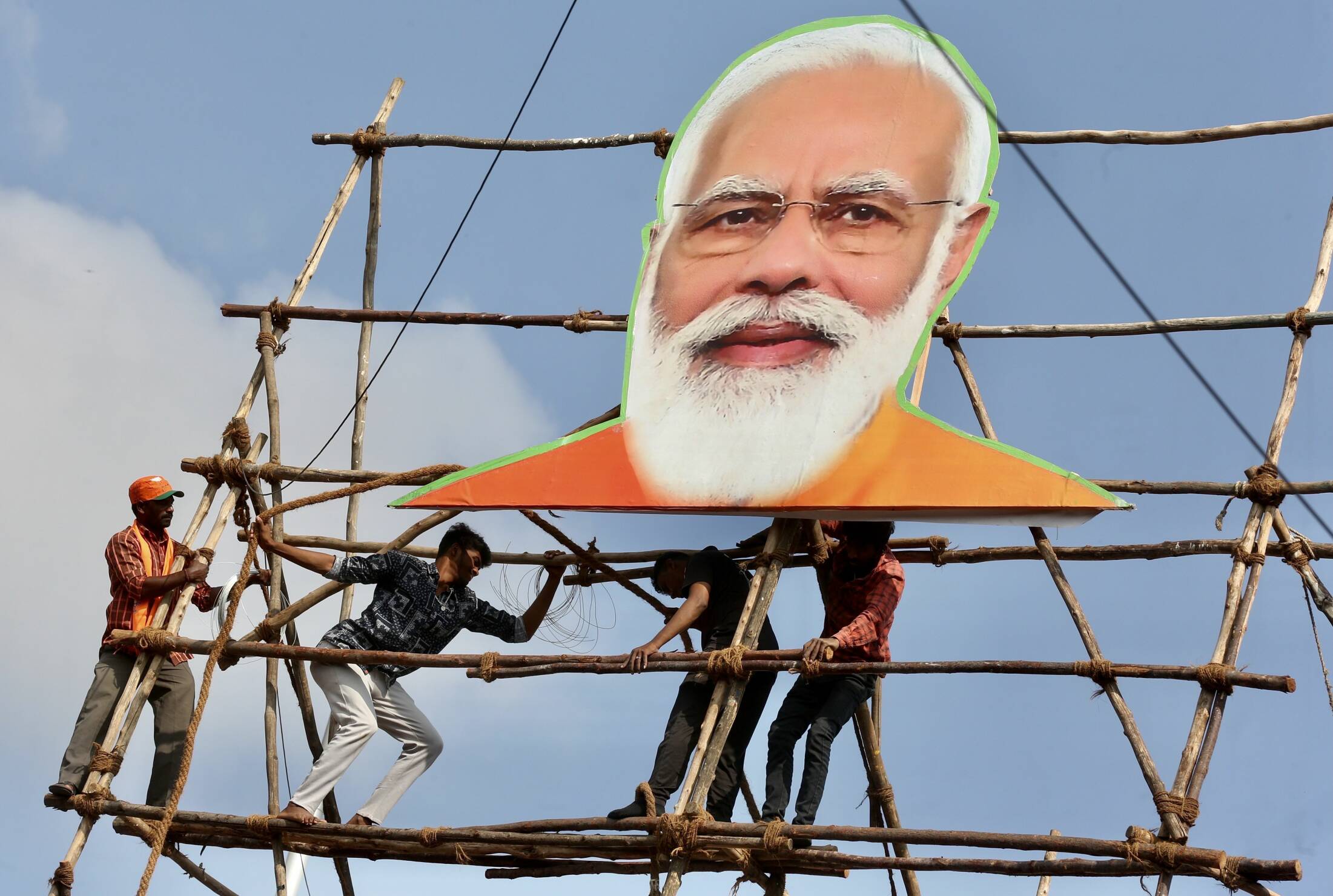
‘India is the
world’s largest
democracy’
A lot is still unclear about the elections to be held in India this spring: when voters can go to
the polling stations and what the parties’ programmes entail. Be that as it may, it is very unlikely
that the ruling Bharatiya Janata Party will not win.
“
Ritumbra Manuvie:
‘When looking at Wilders’ followers, you find a lot of Indians’
Next spring, elections will be held for the Indian lower house, the Lok Sabha. That's about all we know now, at the end of February. The date? Somewhere in April or May, but the elections could also be spread over several days. The two biggest parties, prime minister Modi’s Bharatiya Janata Party (BJP) and the Indian National Congress (INC), have not yet published their election programmes.
Logistic nightmare
‘India is the world’s largest democracy, in terms of the number of voters, but also with regard to the election infrastructure,’ says Assistant Professor Ritumbra Manuvie ‘In the tiniest villages there are polling stations, so to hold elections everywhere on the same day is a logistic nightmare. But the BJP nonetheless favours the principle of one country, one election, so that would mean that there will be one date for the elections. We are not sure yet.’
With 47 seats, the INC is by far the largest opposition party, but is dwarfed by the BJP’s 290 seats. With that, Modi’s party has a majority in the parliament consisting of 543 seats. Together with fifteen other parties, most of which only have a few seats, the BJP forms a coalition occupying a total of 339 seats.
Right-wing nationalist Hindu party
‘The BJP is a right-wing nationalist Hindu party, and really the political wing of the Rashtriya Swayamsevak Sangh,’ says Munuvie. ‘That is an extreme right, paramilitary organization that emerged in the forties, during India’s war for independence. The RSS was opposed to dividing India along religious lines, which in essence meant separating it from Pakistan, which is predominantly Muslim, and felt that all of India should become one Hindu nation. Members of this organization killed Mahatma Gandhi. They viewed him as foreign to the Indian culture and hostile towards the Hindus. Prime minister Modi is a ‘pra charak’, as RSS adherents are called.’
Progressive and secular India
Gandhi’s party, the INC, on the other hand, propagates neutral and non-religious values. Manuvie: ‘The INC was founded in 1885 as a progressive front against the colonial repression. The party’s origins are rooted in the war for independence. Ever since its establishment, the INC has preached the idea of a democratic, progressive, and secular India. With rights for everyone, regardless of the caste you belong to.’
Confusing
How these parties will entice the electorate to vote for them, remains unclear. ‘As neither of the parties has published their election programme, we can only rely on previous election programmes,’ Manuvie says. So far, BJP’s agenda has been pretty much the same over the past two elections.‘What about the INC? Manuvie is brief about that. ‘Recently I asked one of my colleagues in India what the INC wants and he sent me a drawing with three horses that run in three different directions. What the INC wants, is very confusing at the moment.’
Taking away civil rights
Following the inevitable election victory, the BJP seems to want to focus all its energy on implementing a new registration system for citizens. ‘46 percent of the people in India do not have a birth certificate,’ says Manuvie. ‘Neither do I, and I come from a well-developed family. Currently, a system called Aadhaar is being used which makes almost everyone visible for the government through their fingerprints and the use of an iris scan. However, the Supreme Court has ruled that this is not a valid proof of citizenship. That can only be done by showing proof of your descent and birth, but that is actually problematic for a lot of people, as they are not in possession of a birth certificate. The BJP now wants to adopt new legislation to deport Muslims in particular who cannot prove their citizenship. This will really affect millions of people who will be deprived of their civil rights and become stateless.’
Wilders pro-Hindu
In the more than likely scenario, according to Manuvie, that BJB will remain the largest party and in case Geert Wilders will be the next Prime Minister of the Netherlands, we can look forward to strong international ties with India – one of the few countries from which the Netherlands imports more than it exports. The common denominator: a resentment towards Muslims. ‘In India, Wilders is very well-known as pro-Hindu and anti-Muslim. He has supported a BJP spokesperson on Twitter when she was under attack for criticizing Islam, for example. That riot led to the decapitation of a BJP-adherent by two Muslims. When looking at Wilders’ followers, you find a lot of Indians.’
Manuvie is convinced that this large Indian support is an explanation for Wilders’ unexpected success in the recent elections in the Netherlands. My rational feeling is that he has received a lot of support from Indians, second generation immigrants, and Surinam Hindus, mostly because Modi is popular amongst them.
PHOTO: ANP / SEM VAN DER WAL

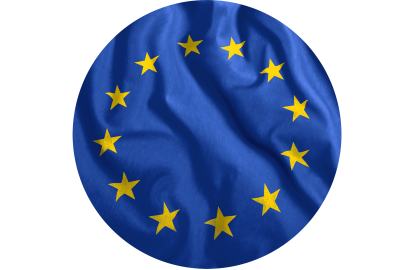
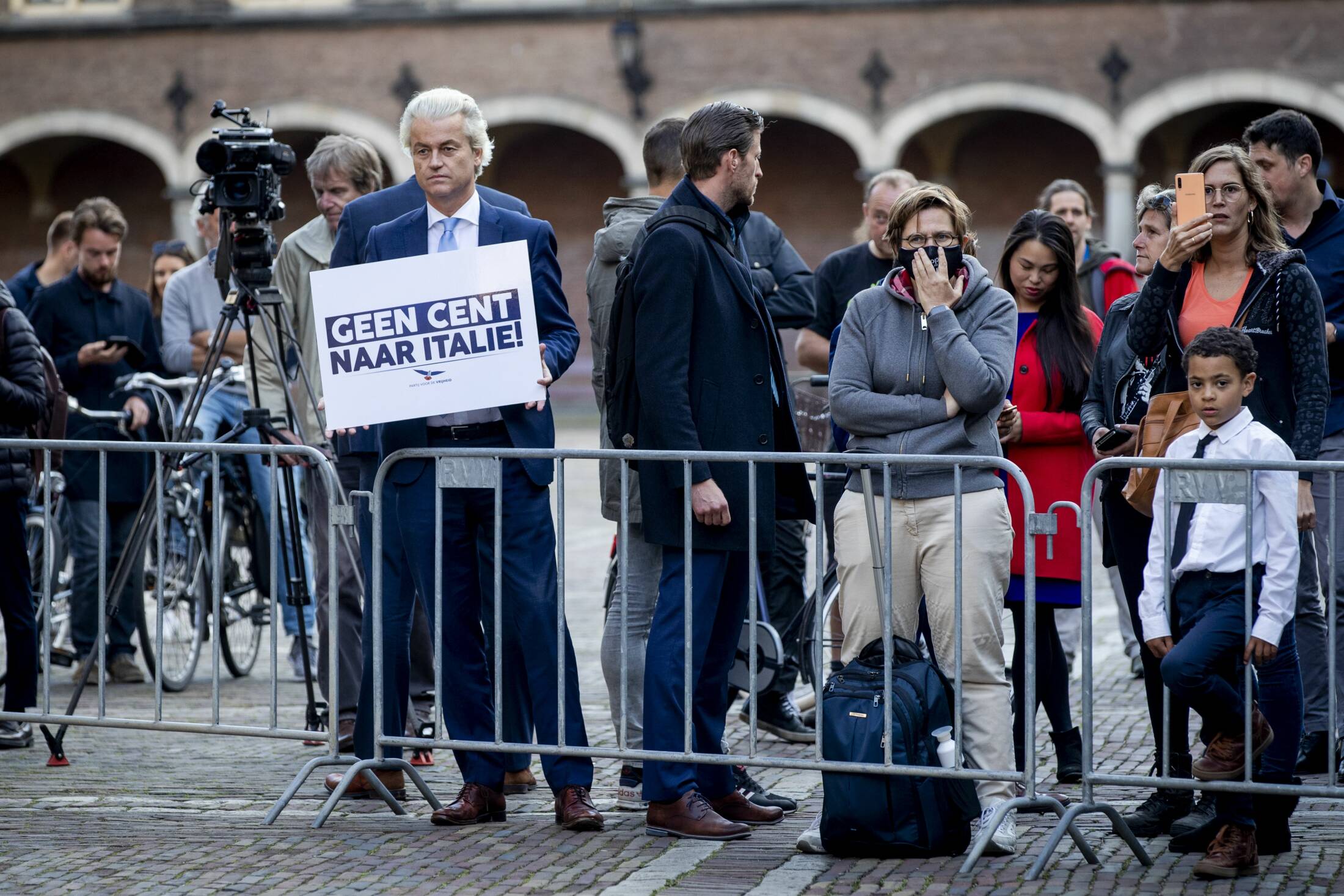
The European elections will be as boring
as always
Do we have to fear a jerk towards the right in the European elections?
Pieter de Wilde thinks not. He predicts that the European elections will be
as boring as always.
“
Pieter de Wilde:
‘The downfall of the EU has been predicted for years. Especially
Anglo-Saxon media have been
eager to report on this.’
Various media were doomsaying this past January: we should expect a ‘sharp right turn’ in the European Parliament elections in June. The newspapers and news sites based themselves on a report from the European Council on Foreign Relations (ECFR), a pan-European think tank.
Predictions
Pieter de Wilde, Professor of European Politics and Society, has often heard similar predictions to the point where he no longer believes them. ‘During the European elections campaign, you consistently hear that the far right will win. That same sentiment was present in earlier European elections. It’s true that the parties to the right of the European People’s Party, the centre-right fraction of Christian Democrats and Conservatives, are growing larger. But they have never been a key factor within the European Parliament.’
No difference
A strange realization when the fact is that European elections attract a relatively high number of protest voters. De Wilde: ‘Opposition parties and parties at the ends of the political spectrum usually garner more votes in European elections than they do on a national level.’ The reason for the far right being unable to make a difference is that the European elections are ‘a lot of small, national elections grouped together’, as De Wilde calls it. ‘That’s why there are fewer political shifts in European elections than we are used to in the Netherlands. If the far right wins in our country, they usually lose in a different country, which evens the score as a result. The best prediction is that the elections will be quite boring.’
Sharp right turn
Even if we do see a sharp turn towards the right, that will be all that comes of it, according to De Wilde. ‘There would be a possibility that the political fraction Identity and Democracy, in which the extreme right parties are united, will form a majority in the European Parliament together with the European People’s Party (EPP, ed.) and the European Conservatives. The EPP will also still reach a majority with the left and liberal parties, but, one way or another, the EPP will establish a better negotiating position, because they can choose who to form a majority with. That would be new.’
European Constitution
That does not mean we’ll see a radically different political landscape, De Wilde assures us. He provides several reasons why: ‘European treaties goes into a lot of detail about how the EU should practise politics. Moreover, the European Constitution also states what Europe is and isn’t allowed to do, which is quite a lot, and liberal politics are partially interwoven in this Constitution. For example, it covers the free market and the freedom of movement of capital within it.[P21] In addition, if the far right does become really big and forms a coalition with the EP, they would then find out that the member states, which are for the most part not governed by the far right, will object to and block all their plans, because the Commissioners of the European Commission are nominated by the national governments. The German Chancellor, for example, is a Social Democrat and would never support a far-right candidate from the Alternative for Germany (AfD) party. But the President of the European Commission does have to work together with these candidates, even if they are radically different to them in terms of politics.
What does Wilders want
What De Wilde finds more exciting: ‘The Party for Freedom (PVV) is far right and has become a strong political force in the Netherlands, but will Geert Wilders take his responsibility in the EU if he becomes the Dutch Prime Minister? Wilders drastically changed his rhetoric since his election victory to come across as more presidential, but he also still plays his traditional role of agitator. So, what will he do at the European level? If you want to stop immigrants, you have to be in the European Parliament, because that is where the shared borders are discussed. Does he want to destroy the EU, or does he want to restructure it into Fortress Europe in order to counter immigration? Is he in favour of another commission led by Von der Leyen? I can’t imagine he is, so who is his lead candidate for the European Commission? Eurosceptic parties tend to only offer criticism and no useful alternatives. Journalists should ask him some critical questions about that. That’s not happening right now.’
Anglo-Saxon doomsaying
Speaking of journalists, De Wilde would like to see more journalists who can speak a foreign language other than English. ‘The downfall of the EU has been predicted for years. Especially Anglo-Saxon media have been eager to report on this’, says De Wilde. ‘Dutch journalism is increasingly looking at English-language media, because journalists speak less and less other languages, and that’s how doomsaying is imported here from England and the US However, both the British and the American media have a political agenda to blacken the EU. If The Economist, The Guardian, CNN, or The New York Times were right, the EU would have ceased to exist thirty years ago.’


READING TIME: 8 MINUTES
TEXT: BERT PLATZER





Elections
in India,
Eur ope and
the United
States
This year, around 4 billion people will be allowed to go to the polls in almost 70 countries and in Europe. Although not all elections will be free and fair, sometimes we can outright speak of sham elections, such as in Bangladesh, Iran, Russia, Rwanda, Tunisia and Belarus. In this triptych, UG researchers Ritumbra Manuvie, Pieter de Wilde and
Lisa Gaufman look ahead to the elections in India, Europe and the United States respectively. Anyhow, this year will show more than ever what the state of democracy is in the world.

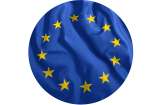
Koorosh Shomalzadeh – Faculty of Science and Engineering
The man who loves walking will walk further than the man who loves the destination.
PROPOSITION
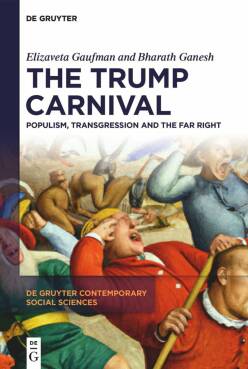
The book The Trump Carnival – Populism, Transgression and the Far Right by Lisa Gaufman and Bharath Ganesh is for sale, but can also be downloaded for free in open access. You can read more about the book and the download here.
“
Lisa Gaufman:
‘The media should be writing
down that his speeches do
not add up.’
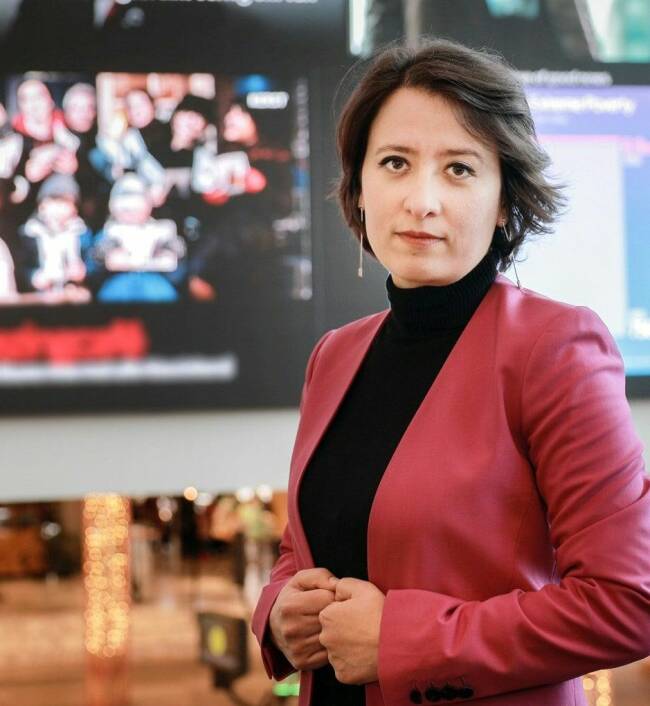
PHOTO: HENK VEENSTRA
The question that is preying on our mind is: will it be Trump or Biden? And, of course, with ‘Biden’ we mean ‘not Trump’. ‘Yes, that is the question many people ask themselves’, says Lisa Gaufman. Her answer to this question is not very encouraging. In the recently published book The Trump Carnival – Populism, Transgression and the Far Right, assistant professors Lisa Gaufman of the UG and Bharath Ganesh of the University of Amsterdam show that it is perfectly possible that Trump will win the US presidential election in November.
Endless arguments
One problem, Gaufman points out, is that the media unconsciously normalize Trump. ‘Trump can make endless, incoherent arguments with no apparent point. That goes from windmills to toilet flushers to a friend’s yacht. The media turn this into a coherent story and distil his message from it. This way, they turn Trump into a normal politician and contribute to his popularity, whereas they should be writing down that his speeches do not add up.
Dictator from day one
Moreover, the American public has been battered by Trump’s increasingly radical rhetoric, while it actually incites violence among his supporters. ‘When Trump, during his first campaign, said that Mexicans bring drugs and crime, that was something new. But in a speech last November, Trump called immigrants vermin that poison the blood of the nation. The connotation, of course, is that vermin need to be exterminated. In December, he said that if he is president again, he will be a dictator from day one.
Eight years ago, he did not say such things yet, but it is now considered normal. Even The New York Times, a left-wing newspaper after all, presents Trump as an alpha male, whereas the reality is in fact quite a bit worse. They minimize the damage his rhetoric causes. Or they say he is just joking. You have to keep repeating that what he says is not okay. That it leads to violence, to deaths. Just look at the Capitol riots. And when Trump called coronavirus ‘the China virus’, it led to a peak in violence against Asians.
God’s imperfect tool
Trump uses this violence to hold the Republican Party in his grasp: many within the party are afraid of his violent supporters. At the same time, Trump made the racism that already existed within the party mainstream. ‘He gives voice to what many republicans were already thinking but were afraid of saying. Because of Trump, they are no longer ashamed of their racism.’
Add to this the fact that Trump presents himself as a political outsider, and you can imagine that for many conservative Americans he is an appealing candidate. ‘Before, the presidential candidate was expected to be a real family man, otherwise they had no chance of winning. But look at Trump: multiple women, adultery, court cases. With him, people see it as something positive, because he is an outsider. This does not even matter to the white, evangelical, deeply religious Christians, because they see him as God’s imperfect tool who will make America great again. Trump makes very clever use of this. He presents himself as the one who can fix it, because he is a so-called blue-collar billionaire, a successful businessman – which is, of course, nonsense. But this is consistent with the populist idea that he is not from the corrupt elite but from the pure people. In America’s political culture, it is mainly the republicans who have a deeply ingrained distrust of the government and its institutions.’
Explain things better
It is obvious: It does not look good for the US. You can just see things going wrong again. Is there a bright side to this? If so, what is it? Gaufman: ‘Our main hope is that the media will reflect on themselves about what they are doing when they talk about the far right and normalize racist and fascist rhetoric. Furthermore, I do not know whether the Democratic Party is actually using its full potential to mobilize its electorate. They really need to explain better that because of Trump, the national right to abortion was taken away by the Supreme Court. But with the two eldest candidates in the history of the US, 77 and 81, it is difficult to mobilize the electorate, especially young people. Last time, they were also the eldest candidates.’
That is not a very bright side. ‘No,’ says Gaufman, ‘but I am an optimist and I still have hope that Trump will lose. But even if Biden wins, there will be violence. Trump’s supporters will resist violently because they will think that the results are not real.’
PHOTO: ANP / ELINE VAN NES
In the run-up to the United States presidential election, it is mainly about Trump. Even if he does not become the next president, democracy will suffer,
predicts Lisa Gaufman.
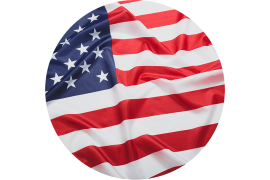
Trump or no Trump,
that is the question

“
Pieter de Wilde:
‘The downfall of the EU has been predicted for years. Especially
Anglo-Saxon media have been
eager to report on this.’

Various media were doomsaying this past January: we should expect a ‘sharp right turn’ in the European Parliament elections in June. The newspapers and news sites based themselves on a report from the European Council on Foreign Relations (ECFR), a pan-European think tank.
Predictions
Pieter de Wilde, Professor of European Politics and Society, has often heard similar predictions to the point where he no longer believes them. ‘During the European elections campaign, you consistently hear that the far right will win. That same sentiment was present in earlier European elections. It’s true that the parties to the right of the European People’s Party, the centre-right fraction of Christian Democrats and Conservatives, are growing larger. But they have never been a key factor within the European Parliament.’
No difference
A strange realization when the fact is that European elections attract a relatively high number of protest voters. De Wilde: ‘Opposition parties and parties at the ends of the political spectrum usually garner more votes in European elections than they do on a national level.’ The reason for the far right being unable to make a difference is that the European elections are ‘a lot of small, national elections grouped together’, as De Wilde calls it. ‘That’s why there are fewer political shifts in European elections than we are used to in the Netherlands. If the far right wins in our country, they usually lose in a different country, which evens the score as a result. The best prediction is that the elections will be quite boring.’
Sharp right turn
Even if we do see a sharp turn towards the right, that will be all that comes of it, according to De Wilde. ‘There would be a possibility that the political fraction Identity and Democracy, in which the extreme right parties are united, will form a majority in the European Parliament together with the European People’s Party (EPP, ed.) and the European Conservatives. The EPP will also still reach a majority with the left and liberal parties, but, one way or another, the EPP will establish a better negotiating position, because they can choose who to form a majority with. That would be new.’
European Constitution
That does not mean we’ll see a radically different political landscape, De Wilde assures us. He provides several reasons why: ‘European treaties goes into a lot of detail about how the EU should practise politics. Moreover, the European Constitution also states what Europe is and isn’t allowed to do, which is quite a lot, and liberal politics are partially interwoven in this Constitution. For example, it covers the free market and the freedom of movement of capital within it.[P21] In addition, if the far right does become really big and forms a coalition with the EP, they would then find out that the member states, which are for the most part not governed by the far right, will object to and block all their plans, because the Commissioners of the European Commission are nominated by the national governments. The German Chancellor, for example, is a Social Democrat and would never support a far-right candidate from the Alternative for Germany (AfD) party. But the President of the European Commission does have to work together with these candidates, even if they are radically different to them in terms of politics.
What does Wilders want
What De Wilde finds more exciting: ‘The Party for Freedom (PVV) is far right and has become a strong political force in the Netherlands, but will Geert Wilders take his responsibility in the EU if he becomes the Dutch Prime Minister? Wilders drastically changed his rhetoric since his election victory to come across as more presidential, but he also still plays his traditional role of agitator. So, what will he do at the European level? If you want to stop immigrants, you have to be in the European Parliament, because that is where the shared borders are discussed. Does he want to destroy the EU, or does he want to restructure it into Fortress Europe in order to counter immigration? Is he in favour of another commission led by Von der Leyen? I can’t imagine he is, so who is his lead candidate for the European Commission? Eurosceptic parties tend to only offer criticism and no useful alternatives. Journalists should ask him some critical questions about that. That’s not happening right now.’
Anglo-Saxon doomsaying
Speaking of journalists, De Wilde would like to see more journalists who can speak a foreign language other than English. ‘The downfall of the EU has been predicted for years. Especially Anglo-Saxon media have been eager to report on this’, says De Wilde. ‘Dutch journalism is increasingly looking at English-language media, because journalists speak less and less other languages, and that’s how doomsaying is imported here from England and the US However, both the British and the American media have a political agenda to blacken the EU. If The Economist, The Guardian, CNN, or The New York Times were right, the EU would have ceased to exist thirty years ago.’
Do we have to fear a jerk towards the right in the European elections?
Pieter de Wilde thinks not. He predicts that the European elections will be
as boring as always.
PHOTO: ANP / SEM VAN DER WAL
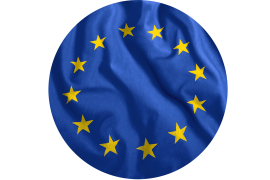
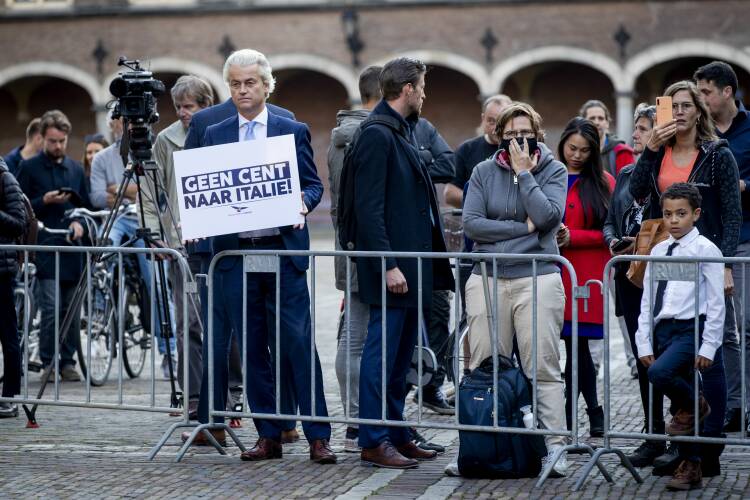
The European elections will be as boring
as always
PHOTO: REYER BOXEM
PHOTO: EEPA-JAGADEESH NV

Ritumbra Manuvie:
‘When looking at Wilders’ followers, you find a lot of Indians’
“
Next spring, elections will be held for the Indian lower house, the Lok Sabha. That’s about all we know now, at the end of February. The date? Somewhere in April or May, but the elections could also be spread over several days. The two biggest parties, prime minister Modi’s Bharatiya Janata Party (BJP) and the Indian National Congress (INC), have not yet published their election programmes.
Logistic nightmare
‘India is the world’s largest democracy, in terms of the number of voters, but also with regard to the election infrastructure,’ says Assistant Professor Ritumbra Manuvie ‘In the tiniest villages there are polling stations, so to hold elections everywhere on the same day is a logistic nightmare. But the BJP nonetheless favours the principle of one country, one election, so that would mean that there will be one date for the elections. We are not sure yet.’
With 47 seats, the INC is by far the largest opposition party, but is dwarfed by the BJP’s 290 seats. With that, Modi’s party has a majority in the parliament consisting of 543 seats. Together with fifteen other parties, most of which only have a few seats, the BJP forms a coalition occupying a total of 339 seats.
Right-wing nationalist Hindu party
‘The BJP is a right-wing nationalist Hindu party, and really the political wing of the Rashtriya Swayamsevak Sangh,’ says Munuvie. ‘That is an extreme right, paramilitary organization that emerged in the forties, during India’s war for independence. The RSS was opposed to dividing India along religious lines, which in essence meant separating it from Pakistan, which is predominantly Muslim, and felt that all of India should become one Hindu nation. Members of this organization killed Mahatma Gandhi. They viewed him as foreign to the Indian culture and hostile towards the Hindus. Prime minister Modi is a ‘pra charak’, as RSS adherents are called.’
Progressive and secular India
Gandhi’s party, the INC, on the other hand, propagates neutral and non-religious values. Manuvie: ‘The INC was founded in 1885 as a progressive front against the colonial repression. The party’s origins are rooted in the war for independence. Ever since its establishment, the INC has preached the idea of a democratic, progressive, and secular India. With rights for everyone, regardless of the caste you belong to.’
Confusing
How these parties will entice the electorate to vote for them, remains unclear. ‘As neither of the parties has published their election programme, we can only rely on previous election programmes,’ Manuvie says. So far, BJP’s agenda has been pretty much the same over the past two elections.‘What about the INC? Manuvie is brief about that. ‘Recently I asked one of my colleagues in India what the INC wants and he sent me a drawing with three horses that run in three different directions. What the INC wants, is very confusing at the moment.’
Taking away civil rights
Following the inevitable election victory, the BJP seems to want to focus all its energy on implementing a new registration system for citizens. ‘46 percent of the people in India do not have a birth certificate,’ says Manuvie. ‘Neither do I, and I come from a well-developed family. Currently, a system called Aadhaar is being used which makes almost everyone visible for the government through their fingerprints and the use of an iris scan. However, the Supreme Court has ruled that this is not a valid proof of citizenship. That can only be done by showing proof of your descent and birth, but that is actually problematic for a lot of people, as they are not in possession of a birth certificate. The BJP now wants to adopt new legislation to deport Muslims in particular who cannot prove their citizenship. This will really affect millions of people who will be deprived of their civil rights and become stateless.’
Wilders pro-Hindu
In the more than likely scenario, according to Manuvie, that BJB will remain the largest party and in case Geert Wilders will be the next Prime Minister of the Netherlands, we can look forward to strong international ties with India – one of the few countries from which the Netherlands imports more than it exports. The common denominator: a resentment towards Muslims. ‘In India, Wilders is very well-known as pro-Hindu and anti-Muslim. He has supported a BJP spokesperson on Twitter when she was under attack for criticizing Islam, for example. That riot led to the decapitation of a BJP-adherent by two Muslims. When looking at Wilders’ followers, you find a lot of Indians.’
Manuvie is convinced that this large Indian support is an explanation for Wilders’ unexpected success in the recent elections in the Netherlands. My rational feeling is that he has received a lot of support from Indians, second generation immigrants, and Surinam Hindus, mostly because Modi is popular amongst them.
A lot is still unclear about the elections to be held in India this spring: when voters can go tothe polling stations and what the parties’ programmes entail. Be that as it may, it is very unlikely that the ruling Bharatiya Janata Party will not win.
‘India is the
world’s largest
democracy’
